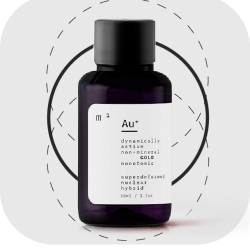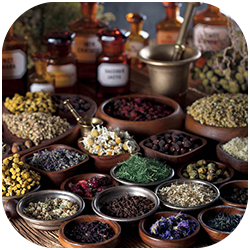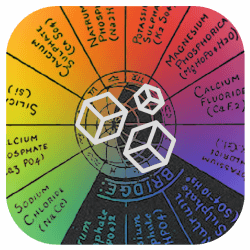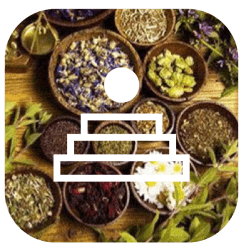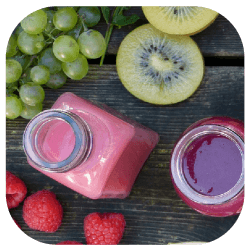Psychic 8 (SATURN) Vata Dosha
- Saturn rules over the nails, hairs, teeth, bones, skeleton, skin, and nervous system.
- They should avoid drugs, other intoxicants, canned food, fast food; instead they should eat more coarse and coconut powder; drink more fresh juices to avoid constipation and other troubles created by the aggravation of the wind element, such as rheumatism, arthritis, and skin irritations.
- They should take blue sapphire powder to help their bodies heal electrochemically.
- Saturnine people are susceptible to paralysis, rheumatism, gout, deafness,muteness, depression, anxiety, colic pains, ear troubles, insanity, and asthma.
- Their main problems are with the aggravation of the humor of wind—gas in the intestines, constipation, and blood pressure and heart troubles.
- They should take blue sapphire powder to help their bodies heal electrochemically.
- Massaging their bodies regularly with sesame oil or if possible mustard oil.
- They should use spices that are also diuretics, such as cumin, and take morning walks in an open area.g cold and dry skin
- Taking blue sapphire powder before going to bed will help alleviate issues such as catching cold and dry skin, since Saturn is a cold and dry.
- Number 8 natives should increase their vitamin A, D, E, calcium, and iron intake.
- Number 8 should fast on a saturday, after their sunset meditation eating khichari—a dish prepared from a mixture of split urad beans (split black beans with peels) and rice.
Vatas should focus on eating more of the Sweet taste, ie: dairy, nuts and seeds, root vegetables, meat, fish and shellfish, whole grains, and squash are good choices for you
Qualities to Reduce: cold, light, dry
Tastes to Maximize: sweet; secondarily sour & salty
The Sweet Taste .:. earth + water …is heavy, moist, and cool. This increases Kapha and decreases Vata and Pitta. Examples are nuts, grains, oils, meats, and most dairy.
The Sour Taste .:. fire + earth …is heavy, moist, and hot. This increases Pitta and Kapha and decreases Vata. Examples are pickles and fermented foods such as yogurt.
Tastes to Minimize: pungent, astringent, bitter
The Pungent Taste .:. fire + air …is light, dry, and hot. This increases Pitta and Vata and decreases Kapha. Examples are chili peppers, ginger, and black pepper.
The Astringent Taste .:. earth + air …is dry and cool. This increases Vata and decreases Pitta and Kapha. Examples are most beans, cranberries, and pomegranates.
The Bitter Taste .:. air + ether …is light, dry, and cool. This increases Vata and decreases Pitta and Kapha. Examples are leafy greens and herbs such as goldenseal and turmeric.
Vata season, goes from late fall into early winter it’s Elements are Metal and Water
The vata diet in spring
The vata diet is about nourishing the nervous system, raising the digestive fire and aiding the body in absorbing nutrients. Vata types are aggravated by drying and cold foods, so keep your level of warmth and oil intake high, particularly in early spring where the weather might still be a bit chilly. Try a lentil based dahl made with coconut oil and garnished with ghee.
Try to practise these good eating habits during the change in the seasons:
- Eat at regular intervals and don’t over-eat or forget to eat
- Relax and spend time with your food
- Emphasise foods that are warm, soupy, heavy and oily.
- Increase your intake of natural oils
- Favour foods that are sweet, sour or salty
- Reduce foods that are cold, dry or hard
- Reduce foods that are very spicy, bitter or astringent
- Avoid refined foods, stimulants and processed foods
Diet for vata in summer
Increase foods full of oil and moisture, to prevent dryness from setting in and causing concerns with constipation and a tendency towards irregularity. Use oils such as ghee and coconut oil to cook with and drizzle oils such as hemp and olive oil over your meals.
Steer clear of dry foods such as crackers, crisps and bread. Increase your intake of refreshing herbal teas that will hydrate the system such as licorice, peppermint, fennel and rose.
Diet for vata in Fall
The vata diet is about nourishing the nervous system, raising the digestive fire and aiding the body in absorbing nutrients. It is particularly beneficial at the vata times of year which are primarily spring and autumn.
- Eat at regular intervals and don’t over-eat or forget to eat. Relax and spend time with your food
- Emphasise foods that are warm, soupy, heavy and oily. Increase your intake of natural oils
- Favour foods that are sweet, sour or salty
- Reduce foods that are cold, dry or hard
- Reduce foods that are very spicy, bitter or astringent
- Avoid refined foods, stimulants and processed foods
- Herbs to help balance the changeable nature of vata in the autumn are those that support our nervous system.
Diet for vata in Winter
You can balance vata’s cold, airy and dry tendencies by increasing its opposite qualities and introducing more warmth, earthiness and oily nourishment into your life. This includes staying warm at all times, keeping a regular sleep pattern, and enjoying earthy spices and foods.
- Eat at regular intervals and don’t over-eat or forget to eat. Relax and spend time with your food.
- Emphasise foods that are warm, soupy, heavy and oily and increase your intake of natural oils. This can be in the form of oils used in cooking, but also oils found in nut milks for example.
- Favour foods that are sweet, sour or salty as these will help increase heat and moisture.
- Reduce foods that are characteristically cold and dry, but also foods that are very spicy as the extreme heat can often upset the sensitive vata digestion.
- Avoid refined foods, stimulants and processed foods as these take more energy to break down, using precious heat reserves.
- The sudden change into longer hours of darkness can also affect a vata’s already delicate sleeping patterns. Making a glass of hot, spicy milk with herbs such as cinnamon and nutmeg in the evenings can help to relax the mind before bed.
- Herbs to help keep vata in balance in the winter are those that support our nervous system.
- If the digestion becomes slow and cold, and you also notice your joints following suit, then try Turmeric. Turmeric will keep the digestive fire burning but also protect your joints from stiffening up.
- Vata types are also often prone to lingering colds and flu that take weeks to recover from. If you recognize this pattern in yourself, then try immune strengthening herbs such as elderberry, ginger and medicinal mushrooms.
Vata Food List
Grains
It is best to eat these as a cooked grain or as an unyeasted bread. Small amounts of yeast breads are all right, however.
Best:* amaranth, oats (cooked), quinoa, rice (white or brown), wheat
Small Amounts:* barley, millet
Minimize:* buckwheat, corn flour (chips, bread, and tortillas), dry oats (granola), polenta, rye
Dairy
It is best to use raw or organic and non-homogenized milk. Milk should be taken warm with a small amount of spice such as ginger, cardamom, or fennel.
Best:* butter, buttermilk, kefir, milk, sour cream, yogurt (fresh)
Small Amounts:* hard cheeses
Minimize:* ice cream, frozen yogurt
Sweeteners
Moderation is important; overuse of even the best sweeteners will increase vata.
Best:* raw uncooked honey, jaggery (raw sugar), maltose, maple syrup, molasses, rice syrup, sucanat
Small Amounts:* date sugar, grape sugar
Minimize:* brown sugar, white table sugar
Nuts and Seeds
Lightly roasted nuts are best. Dry roasting should be avoided. Salted nuts are fine. Nut butters are highly recommended except for peanut butter.
Best:* almonds
Small Amounts:* cashews, filberts, pecans, pinon, pistachio, pumpkin seeds, sesame seeds, sunflower seeds, and any other nut not mentioned
Minimize:* peanuts
Condiments
Condiments can be used to add one of the tastes to a meal or to balance out any heating or cooling qualities of a dish.
Best:* mayonnaise, vinegar
Small Amounts:* catsup
Minimize:* carob, chocolate
Oils
Healthy oils are very important and should be used abundantly if the skin is dry. They alleviate dryness and are generally heavy and nourishing.
Best:* almond, ghee, sesame
Small Amounts:* avocado, coconut, flaxseed, mustard, olive, peanut, sunflower
Minimize:* safflower
Fruits
Sweeter fruits are best.
Best:* baked apples, apricots, avocados, bananas (ripe), blackberries, cantaloupe, cherries, coconut, cranberry sauce, dates(not dry), figs (fresh), grapefruit, grapes, lemons, mangos, nectarines, oranges, papaya, peaches, pears, persimmons, pineapple, plums, raspberries, strawberries (ripe), tangerines
Small Amounts:* apples (sour is best), pomegranate
Minimize:* dried fruit of any kind, cranberries
Vegetables
Cooked vegetables are best because they are easier to digest.
Best:* avocado, beets, carrots (but not as a juice), leeks, mustard greens, okra, onions (well cooked), parsnips, shallots, acorn squash, winter squash, sweet potatoes, tomatoes, water chestnuts
Small Amounts:* broccoli, cauliflower, celery, corn, cucumber, eggplant, green beans, kale, medium chilies and hot peppers, mushrooms, potatoes, radishes, seaweed, spinach, sweet peas, zucchini.
Minimize:* alfalfa sprouts, artichokes (unless served with a butter-lemon sauce), asparagus, bean sprouts, Brussels sprouts, cabbage (even cooked), raw vegetables, snow peas
Meats
If you choose to eat meat, limit consumption to 2–3 times per week, and eat it at lunch.
Best:* chicken and turkey (dark meat), beef, duck, eggs, fresh water fish, lamb, pork, seafood, venison
Small Amounts:* chicken and turkey (white meat), shellfish
Minimize:* none
Spices
spicing, the overall spiciness is more important than individual spices. Even some “Minimize” spices can be used if balanced with other spices on the “Best” list. For vata, food should be spiced moderately and never very hot or bland.
Best:* anise, basil, bay leaf, caraway, cardamom, catnip, cinnamon, clove, cumin, dill, fennel, fenugreek, garlic, ginger(fresh), marjoram, mustard, nutmeg, oregano, pepper, peppermint, poppy seeds, rosemary, saffron, sage, spearmint, thyme, turmeric
Small Amounts:* cayenne pepper, cilantro, ginger (dry), horseradish, mustards (very hot), parsley
Minimize:* none
Legumes
Those listed in “Small Amounts” are best as a dal or a spread with spices added. When digestion is weak or constipation is present, even those beans listed under “Small Amounts” should be avoided.
Best:* mung beans
Small Amounts:* tofu, hummus
Minimize:* aduki beans, black beans, chickpeas, fava beans, kidney beans, lentils, Mexican beans, navy beans, pinto beans, soybeans (except as tofu or soy milk)
Beverages
These are best taken at room temperature or warm and never cold.
Best:* 3–4 cups of room temperature or warm water per day; spicy teas such as chamomile, cinnamon, clove, and ginger
Small Amounts:* diluted fruit juices Minimize:* all alcohol, black tea, carbonated mineral water, coffee, fruit juices, soft drinks
Avoid Always
Vatas should avoid these foods: margarine, canola, GMO anything (ie: soy, corn, etc.), agave nectar, high fructose sweeteners, grapeseed oil, soda, CAFO meats *
* “Best” Foods can be eaten without reservation on a daily basis. These foods are the most ideal ones as they are the most balanced for this dosha. Individuals who are sick should consume only the foods on this list.
* “Small Amounts” Foods can be eaten in small portions fairly often or in larger portions once or twice each week. Eating a wide variety of these foods is better than an abundance of just one. Overreliance on these foods can cause imbalance.
* “Minimize” Foods should be eaten only on rare occasions, ie: once each month. They can significantly disturb the dosha.
|
PREFER
|
AVOID OR REDUCE
|
|
FRUITS
apples (steamed, cooked or baked)
apricots
avocado
bananas (ripe)
blackberries
cantaloupe
cherries
coconut
currants
dates (fresh or soaked)
durian
figs (fresh or soaked)
grapefruit
kiwi
lemon
lime
longan
lychees
mango
melons
nectarines
oranges (sweet)
papaya
peaches
pears (cooked)
pineapple (sweet)
plums
raisins (soaked)
rambutan
raspberries
rhubarb
strawberries
soursop
tamarind
tangerines
|
FRUITS
apples (raw)
cranberries
dried fruits
guava
pears (raw)
persimmon
pomegranate
prunes
quince
watermelon
|
|
VEGETABLES
acorn squash
asparagus
beets
bell peppers (cooked)
bok choy
broccoli (cooked)
corn
carrots (cooked)
cauliflower
celery
chard
cucumbers
daikon
fennel stalks
fenugreek greens
green beans
green chilies
green peas (cooked)
jerusalem artichokes
kale
leeks
mustard green
okra
olives (black)
onion (cooked)
parsnip
pumpkin
radishes
rutabaga
seaweed
spaghetti squash
spinach (cooked)
summer squash
sweet peas (cooked)
sweet potatoes
taro root
tomatoes (cooked)
turnip
yams
watercress
winter squash
zucchini (cooked)
|
VEGETABLES
artichokes
beet greens
bell peppers (raw)
bitter melon
broccoli (raw)
Brussels sprouts
burdock root
cabbage
cauliflower
celery
dandelion greens
eggplant
endive
horseradish
jicama
kohlrabi
lettuce
mushrooms
olives (green)
onion (raw)
parsnip
potatoes
radicchio
radish (raw)
red chilies
snow peas
spinach (raw)
sprouts
tomatoes (raw)
wheat grass
white potatoes
zucchini (raw)
|
|
GRAINS AND LEGUMES
amaranth
bulgur
durham flor
durum wheat flour
lentils (red)
lima beans
mung beans (yellow and green)
mung dal
oats (cooked)
quinoa
rice
seitan
spelt
tepary beans
toor dal
urad dal
wheat
wheat bran
white rice
|
GRAINS AND LEGUMES
adzuki beans
barley
black beans
black eyed peas
brown rice
buckwheat
carob
chickpeas
corn flour
couscous
dry oats
fava beans
granola
kamut
kidney beans
lentils (brown)
millet
miso
muesli
navy beans
oat barn
pasta
pinto beans
polenta
rice cakes
rye
sago
soybeans
spelt
split peas
tapioca
tempeh
triticale
tofu
white beans
yeasted bread
|
|
DAIRY
butter
buttermilk
cream
kefir (warm or room temp.)
milk (warm and spiced)
paneer
skim milk
sour cream
yogurt (warm or room temp.)
lassi
cheese (soft)
cottage cheese
|
DAIRY
cheese (hard)
ice cream
milk (cold)
condensed milk
powdered milk
yogurt (cold or frozen)
|
|
NUTS AND SEEDS
almonds (soaked and peeled)
Brazil nuts
cashews
charoli nuts
chestnuts
chia seeds
flax seeds
hazelnuts
macadamia nuts
pecans
pine nuts
pistachio
pumpkin seeds
sesame seeds
sunflower seeds
walnuts
|
NUTS AND SEEDS
peanuts
poppy seeds
psyllium seeds
|
|
OILS
almond oil
avocado oil
coconut oil
flax seed oil
ghee
olive oil
pumpkin seed oil
sesame oil
sunflower oil
|
OILS
canola oil
safflower oil
soy bean oil
margarine
|
|
BEVERAGES
ajwan tea
almond milk
aloe vera juice
anise tea
apricot juice
basil tea
beet juice
borage tea
cardamom tea
carrot juice
cashew milk
chai
chamomile tea
cherry juice
cherry stem tea
cherry tea
chicory tea
cinnamon tea
coconut milk
comfrey tea
elder flower tea
eucalyptus tea
fennel tea
ginger tea
ginseng tea
grape juice
grapefruit juice
hawthorn tea
jasmine tea
juniper tea
lavender drinks
lemonade
licorice tea
lotus tea
mango juice
marshmallow tea
mint tea
orange juice
papaya juice
peach juice
peppermint tea
pineapple juice
raspberry juice
raspberry tea
rice milk
rose tea
sage tea
strawberry juice
strawberry leaf tea
thyme tea
turmeric milk
turmeric tea
warm and spiced dairy drinks
|
BEVERAGES
alcohol
apple juice
black tea
carbonated drinks
chocolate milk
coffee
cold dairy drinks
cranberry juice
dandelion tea
green tea
guava juice
hibiscus tea
hop tea
ice cold drinks
ice tea
melissa tea
nettle tea
pear juice
persimmon juice
pomegranate juice
prune juice
rosehip tea
smoothies
soy milk
watermelon juice
yarrow tea
|
|
SWEETENERS
barley malt
date sugar
fructose
honey (uncooked)
jaggery
maple syrup
molasses
raw cane sugar
rice syrup
sucanat
turbinado
|
SWEETENERS
agave syrup
brown sugar
white sugar
|
|
SPICES
ajwan
allspice
anise
asafoetida
basil
bay leaves
black pepper
caraway
cardamom
celery seeds
cilantro
cinnamon
cloves
coriander seeds
cumin
curry leaves
dill
fennel
fenugreek
garam masala
garlic
ginger
lemongrass
marjoram
mint
mustard seeds
neem leaves
nutmeg
oregano
paprika
parsley
peppermint
pippali (long pepper)
rock salt
rosemary
saffron
sage
spearmint
tarragon
thyme
turmeric
vanilla
wintergreen
|
SPICES
cayenne
chili peppers
|
|
FRUITS
apples (steamed, cooked or baked)
apricots
avocado
bananas (ripe)
blackberries
cantaloupe
cherries
coconut
currants
dates (fresh or soaked)
durian
figs (fresh or soaked)
grapefruit
kiwi
lemon
lime
longan
lychees
mango
melons
nectarines
oranges (sweet)
papaya
peaches
pears (cooked)
pineapple (sweet)
plums
raisins (soaked)
rambutan
raspberries
rhubarb
strawberries
soursop
tamarind
tangerines
|
FRUITS
apples (raw)
cranberries
dried fruits
guava
pears (raw)
persimmon
pomegranate
prunes
quince
watermelon
|
|
VEGETABLES
acorn squash
asparagus
beets
bell peppers (cooked)
bok choy
broccoli (cooked)
corn
carrots (cooked)
cauliflower
celery
chard
cucumbers
daikon
fennel stalks
fenugreek greens
green beans
green chilies
green peas (cooked)
jerusalem artichokes
kale
leeks
mustard green
okra
olives (black)
onion (cooked)
parsnip
pumpkin
radishes
rutabaga
seaweed
spaghetti squash
spinach (cooked)
summer squash
sweet peas (cooked)
sweet potatoes
taro root
tomatoes (cooked)
turnip
yams
watercress
winter squash
zucchini (cooked)
|
VEGETABLES
artichokes
beet greens
bell peppers (raw)
bitter melon
broccoli (raw)
Brussels sprouts
burdock root
cabbage
cauliflower
celery
dandelion greens
eggplant
endive
horseradish
jicama
kohlrabi
lettuce
mushrooms
olives (green)
onion (raw)
parsnip
potatoes
radicchio
radish (raw)
red chilies
snow peas
spinach (raw)
sprouts
tomatoes (raw)
wheat grass
white potatoes
zucchini (raw)
|
|
GRAINS AND LEGUMES
amaranth
bulgur
durham flor
durum wheat flour
lentils (red)
lima beans
mung beans (yellow and green)
mung dal
oats (cooked)
quinoa
rice
seitan
spelt
tepary beans
toor dal
urad dal
wheat
wheat bran
white rice
|
GRAINS AND LEGUMES
adzuki beans
barley
black beans
black eyed peas
brown rice
buckwheat
carob
chickpeas
corn flour
couscous
dry oats
fava beans
granola
kamut
kidney beans
lentils (brown)
millet
miso
muesli
navy beans
oat barn
pasta
pinto beans
polenta
rice cakes
rye
sago
soybeans
spelt
split peas
tapioca
tempeh
triticale
tofu
white beans
yeasted bread
|
|
DAIRY
butter
buttermilk
cream
kefir (warm or room temp.)
milk (warm and spiced)
paneer
skim milk
sour cream
yogurt (warm or room temp.)
lassi
cheese (soft)
cottage cheese
|
DAIRY
cheese (hard)
ice cream
milk (cold)
condensed milk
powdered milk
yogurt (cold or frozen)
|
|
NUTS AND SEEDS
almonds (soaked and peeled)
Brazil nuts
cashews
charoli nuts
chestnuts
chia seeds
flax seeds
hazelnuts
macadamia nuts
pecans
pine nuts
pistachio
pumpkin seeds
sesame seeds
sunflower seeds
walnuts
|
NUTS AND SEEDS
peanuts
poppy seeds
psyllium seeds
|
|
OILS
almond oil
avocado oil
coconut oil
flax seed oil
ghee
olive oil
pumpkin seed oil
sesame oil
sunflower oil
|
OILS
canola oil
safflower oil
soy bean oil
margarine
|
|
BEVERAGES
ajwan tea
almond milk
aloe vera juice
anise tea
apricot juice
basil tea
beet juice
borage tea
cardamom tea
carrot juice
cashew milk
chai
chamomile tea
cherry juice
cherry stem tea
cherry tea
chicory tea
cinnamon tea
coconut milk
comfrey tea
elder flower tea
eucalyptus tea
fennel tea
ginger tea
ginseng tea
grape juice
grapefruit juice
hawthorn tea
jasmine tea
juniper tea
lavender drinks
lemonade
licorice tea
lotus tea
mango juice
marshmallow tea
mint tea
orange juice
papaya juice
peach juice
peppermint tea
pineapple juice
raspberry juice
raspberry tea
rice milk
rose tea
sage tea
strawberry juice
strawberry leaf tea
thyme tea
turmeric milk
turmeric tea
warm and spiced dairy drinks
|
BEVERAGES
alcohol
apple juice
black tea
carbonated drinks
chocolate milk
coffee
cold dairy drinks
cranberry juice
dandelion tea
green tea
guava juice
hibiscus tea
hop tea
ice cold drinks
ice tea
melissa tea
nettle tea
pear juice
persimmon juice
pomegranate juice
prune juice
rosehip tea
smoothies
soy milk
watermelon juice
yarrow tea
|
|
SWEETENERS
barley malt
date sugar
fructose
honey (uncooked)
jaggery
maple syrup
molasses
raw cane sugar
rice syrup
sucanat
turbinado
|
SWEETENERS
agave syrup
brown sugar
white sugar
|
|
SPICES
ajwan
allspice
anise
asafoetida
basil
bay leaves
black pepper
caraway
cardamom
celery seeds
cilantro
cinnamon
cloves
coriander seeds
cumin
curry leaves
dill
fennel
fenugreek
garam masala
garlic
ginger
lemongrass
marjoram
mint
mustard seeds
neem leaves
nutmeg
oregano
paprika
parsley
peppermint
pippali (long pepper)
rock salt
rosemary
saffron
sage
spearmint
tarragon
thyme
turmeric
vanilla
wintergreen
|
SPICES
cayenne
chili peppers
|




